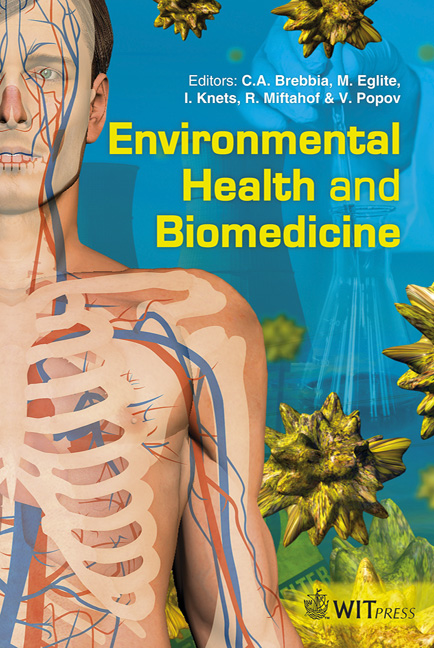Breath Odor Characteristics After Drinking Alcoholic Beverages And Health Monitoring
Price
Free (open access)
Transaction
Volume
15
Pages
10
Page Range
161 - 170
Published
2011
Size
3,105 kb
Paper DOI
10.2495/EHR110151
Copyright
WIT Press
Author(s)
T. Oyabu
Abstract
Alcohol concentration in the expiration of a subjective person after drinking was examined. Beer, Japanese sake, red wine and shochu were adopted as the alcoholic subjects. The sensor outputs after 1 hour and 2 hours of drinking were adopted in the technique. The concentration grade was indicated using three metal-oxide odor sensors. It became obvious that the alcoholic component in the expiration could remain over 3 hours after drinking. Japanese elderly people mostly prefer beer and sake according to a questionnaire survey which was carried out for the aged, and the number of people was 68. The survey was carried out by a mail correspondence method. The number of males was 37 and the female number was 31. Many persons who received the questionnaire preferred beer and sake to whiskey and wine. In this study, the sensor-output characteristic as a function of passage of time after drinking sake was investigated and the suitable amount could be indicated by a developed technique. This means an amount of alcohol from which the subject feels refreshment of mind and body. In the questionnaire, it became obvious that 61% of aged men habitually drunk and 18% of females drunk. Women also preferred wine, plum liquor and shochu cocktails. This system was developed to survey the aged life style and identify whether they drunk moderately or not. And it can be also applicable to health monitoring for the elderly person. Keywords: odor sensor, gas sensor, sensory system, welfare, the aged. 1 Introduction Various kinds of problems are arising together with aging in Japan as well as other advanced countries. The important thing for the aged is to make a life worth living in quality. It is necessary to draw on our resources first and last to
Keywords
odor sensor, gas sensor, sensory system, welfare, the aged





